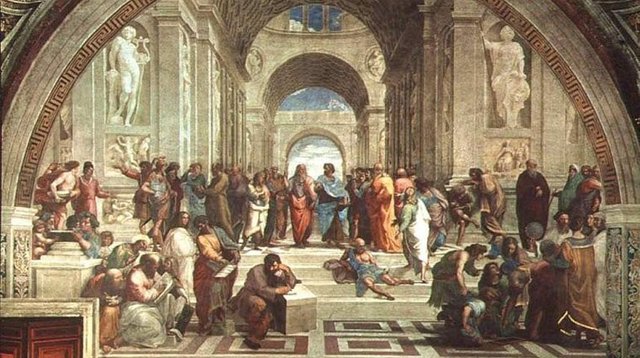Ancient philosophy. Aristotle and his metaphysics. Matter and shape /part 4/
We see constant changes in the world. But any change presupposes, first, something that changes, gets new qualities, and on the other hand it implies the new form itself, the new qualities that are being acquired. If there is no permanent substrate, then the new one will not be change, but a whole new thing. If there are no new qualities, then there is no change, and there is something invariable. On the other hand, any change is nothing more than realization, turning into reality what was only possible, was potentially embedded in the changing one. Therefore, in every alternate being, two principles must be adopted: an opportunity or a force that contains it.
Aristotle, however, is a synthetics and a realist, so he does not separate and oppose matter and form as he sees them and deliberately achieves only as inseparable, everywhere combined. But on the other hand, he sees the world goal and the world's progress in an ever greater and fuller penetration of the reality of what was initially the only opportunity. Finally, it deserves in connection with form and matter to highlight the special terms of Aristotle "enteleleia". Below it is meant the inner being, the nature of things, the attitude and the ability to reach a certain goal-each according to its kind. In this respect, the enteléchia is closely related to the form, but while the form differs more from the actual process of switching from reality to reality, from one state to another - expressing the formation itself. For movement and the first engine. The questions that have arisen so far about causation and causes, both general and private, about matter and form / potency and actuality / end in Aristotle in a common last point-God. Because they all relate to changes in the world, and the changes, as the ancient ones rightly teach, are one of the forms of the world's movement.
The movement of action to cause and cause of action gives an infinite number of causes and actions. The movement of private to general and vice versa reveals an endless series of subordinate concepts. The movement from opportunity to reality is also infinite in both directions forward and backward. So all three questions put us to an infinity. But then the question arises, does not everything turn into one mirage, if no known and achieved cause is not a real cause, it is just the action of the lying behind it. If everything in common is not actually a common one, but is subordinate to the more general of it, and if any actuality and reality is only a transition, not a real ultimate goal. Faced with this question, Aristotle responds clearly and categorically that none of these ranks can be infinite. On the contrary, the number of conditional reasons implies a last, unconditional, real cause. The range of general concepts requires one last, most generally, subordinate, more general. The range of possibilities and realities implies a last, unconditional and enduring reality.
